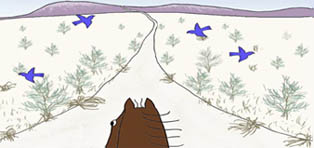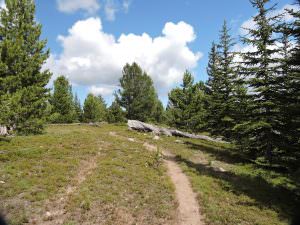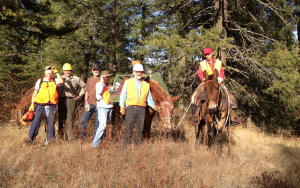Santamariasun.com - Full Article
BY JENNIFER BEST
January 4 2017
Like countless hikers and horsemen, dog walkers and joggers, Doreen Lopez has been riding and hiking the trails through Nipomo’s eucalyptus groves and along its sandy bluffs for decades. Like untold numbers of property owners, Jim Harrington hoped to enjoy the peace and quiet of country living in the privacy of his own home. Today, the pair embodies the battle over public access to private property that increasingly repeats itself as communities develop.
As rural areas build out and open spaces are fenced, walled, and paved, property owners assert their rights to use their space, while longtime residents mourn the loss of land they have walked, hiked, biked, and ridden for years, even decades.
“These people come from the city and want a place in the country, then they fence it off and complain about the smells and sounds of country life,” Lopez said.
In October, Harrington fenced portions of his property after run-ins with equestrian users.
“I’m a nice guy, but I can only be stepped on, walked around, kicked so much,” Harrington said. “I love horses. I ride horses. The whole thing got out of control when one lady wouldn’t listen to me. All I want to do is be legal about it. If they’re going to be snooty and sniping and act like this is their land, I’m old enough to know better. I spent my life working my ass off. Now I want to hide out, be left alone, have peace and quiet.”
In November, representatives of Ride Nipomo Equestrian Trails Alliance met with county staff to discuss options for re-opening the trail, potential easements, and other actions that might return the trail to public service.
“It’s not just for equestrians,” Ride Nipomo President Shelia Patterson said. “We can deal with hikers and bikers, just like we do when we ride Montaña de Oro [State Park]. We can all work together, but we have to have this one vision that we need trails for everyone. It’s about people and health and the kindness people show each other on trails. I’ve never met a mean person on the trail.”
Since 2001, Ride Nipomo Equestrian Trails Alliance has promoted the establishment, conservation, and maintenance of equestrian trails in southern San Luis Obispo County. They adopt trails and perform cleanups along the trails in parks and on private properties where public access is granted.
“We’re not out there to spy on the neighborhood or to trespass. We’re their eyes and ears. We find dump spots and report what we find, we clean it up, and we’ve paid to take thousands of pounds of trash away,” the alliance’s unofficial historian, Barbara Verlengiere, told the Sun.
Alliance members would like to see the preservation of established trails like those along Nipomo’s southwestern bluff, and long-term planning like that used in Norco. That Southern California community, also known as Horsetown, U.S.A, maintains narrow streets, slow speed limits, and 74 miles of trails to promote travel on horseback and horse-drawn carriage.
“That’s what we’re looking for,” said Verlengiere, who left Southern California 35 years ago to settle in then-very-rural Nipomo. “The problem is all these people who come from LA who want it to be like where they came from. They complained about Nipomo Park, the charro arena, horses, cattle, smells. This is the problem. We lost our arena. We’re losing our trails. You live in the country now. Get used to it.”..
Read more here:
http://www.santamariasun.com/cover/15550/when-trails-end-nipomo-landowners-and-equestrians-battle-over-horseback-riding-routes-on-the-mesa/
 Wildernessalliance.org
Wildernessalliance.org


